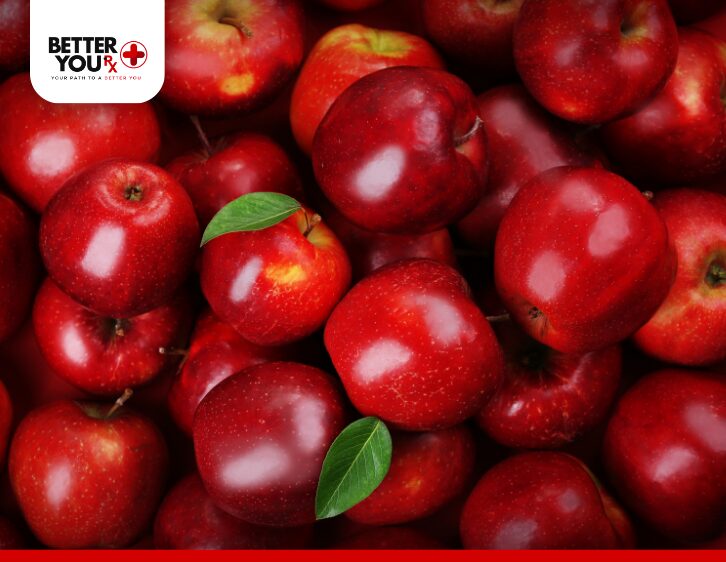Understanding the Risks of Combining Wegovy and Alcohol
Wegovy, a medication used for weight management, is gaining popularity among individuals striving to manage obesity. However, like all medications, it comes with its set of guidelines and considerations. One of the key areas of concern is the interaction between Wegovy and alcohol. In this article, we will explore the potential risks of consuming alcohol while on Wegovy, how it can affect the medication’s effectiveness, and how to manage your health while using this weight loss treatment.
What Is Wegovy (Semaglutide)?
Wegovy, scientifically known as semaglutide, is an injectable prescription medication approved for weight loss. It falls under the category of GLP-1 receptor agonists and is primarily prescribed to individuals who are obese (with a BMI ≥30) or overweight (with a BMI ≥27) and suffer from related medical conditions.
Wegovy mimics the effects of GLP-1, a hormone naturally produced by the body that helps regulate blood sugar levels, digestion, and appetite. By enhancing the body’s ability to manage these processes, Wegovy can assist in promoting weight loss when combined with a healthy diet and increased physical activity.
Wegovy and Alcohol: What You Need to Know
While Wegovy is effective for weight management, the combination of alcohol and this medication can have significant effects on your health. Alcohol may interfere with the medication’s intended function and can intensify side effects. Here’s what you need to know:
Why Should You Avoid Alcohol on Wegovy?

Combining alcohol with Wegovy is not advisable due to several potential risks:
- Disruption of Metabolic Processes: Wegovy works by regulating appetite, digestion, and blood sugar levels. Alcohol, however, can interfere with these processes, leading to unpredictable results.
- Exacerbation of Side Effects: Alcohol can enhance the side effects of Wegovy, particularly gastrointestinal issues and fluctuations in blood sugar levels.
- Risk of Hypoglycemia: Alcohol has the potential to lower blood sugar levels, which may intensify the risk of hypoglycemia (low blood sugar) in individuals taking Wegovy.
- Impaired Weight Loss: Excessive alcohol consumption can counteract the weight loss benefits of Wegovy by adding unnecessary calories to your diet and affecting your metabolism.
Side Effects of Mixing Alcohol and Wegovy

The effects of consuming alcohol while on Wegovy can vary depending on the individual, but some common side effects include:
- Increased Risk of Low Blood Sugar (Hypoglycemia): Alcohol can interfere with blood sugar regulation, leading to dangerous drops in blood sugar levels.
- Gastrointestinal Discomfort: Nausea, vomiting, and stomach upset are more likely when alcohol is consumed alongside Wegovy.
- Dizziness and Lightheadedness: Both Wegovy and alcohol can cause dizziness and lightheadedness, which can be intensified when combined.
- Fluctuations in Heart Rate and Blood Pressure: Alcohol can affect cardiovascular health, exacerbating issues like fluctuations in heart rate and blood pressure, which may be worsened by Wegovy.
More severe side effects can occur in rare cases, including:
- Pancreatitis (inflammation of the pancreas)
- Gallbladder Problems
- Kidney Complications
- Serious Allergic Reactions
What to Do if You Experience Side Effects
If you experience mild side effects such as dizziness, nausea, or stomach discomfort after drinking alcohol on Wegovy, it’s important to:
- Hydrate: Drink plenty of water to help alleviate dehydration and discomfort.
- Rest: Take it easy and monitor how your body responds.
- Avoid Further Alcohol: Refrain from drinking more alcohol until you understand how it affects you with Wegovy.
For more severe reactions, such as difficulty breathing, rapid heartbeat, or signs of an allergic reaction, seek immediate medical attention. Contact your healthcare provider or visit an emergency medical facility if needed.
FAQs: Alcohol and Wegovy
1. Does Wegovy make people drink less alcohol?
Some individuals may notice a reduced desire to drink alcohol while on Wegovy due to its effects on appetite and metabolism. However, this varies from person to person.
2. What is the best alcoholic drink to have while on Wegovy?
If you choose to consume alcohol while taking Wegovy, opt for drinks with fewer calories and lower alcohol content, such as light beer, wine spritzers, or cocktails with diet mixers. Always drink in moderation.
3. Will alcohol prevent me from losing weight on Wegovy?
While moderate alcohol consumption may not completely hinder weight loss, it can contribute extra calories and reduce the effectiveness of the medication. It’s important to monitor alcohol intake to maintain progress.
4. Can I drink alcohol while taking other medications with Wegovy?
Always consult your healthcare provider before mixing alcohol with any medication, including Wegovy. They can guide you on potential interactions based on your treatment plan.
5. Can alcohol worsen my thyroid condition while on Wegovy?
If you have a thyroid condition, it’s especially important to talk to your doctor about alcohol consumption. Alcohol can interfere with thyroid function, and your healthcare provider will help assess risks.
Tips for Drinking Alcohol While on Wegovy

If you’re considering drinking alcohol while on Wegovy, here are some essential tips:
- Moderation is Key: Keep alcohol consumption moderate to avoid adverse effects and to support your weight loss journey.
- Stay Hydrated: Alcohol can dehydrate your body, so drink water alongside alcoholic beverages.
- Monitor Your Body’s Response: Pay attention to how your body reacts to alcohol and make adjustments accordingly.
- Prioritize Nutrition: Ensure that alcohol doesn’t replace meals or interfere with your diet.
- Consult Your Healthcare Provider: Always talk to your doctor about safe alcohol consumption while on Wegovy.
When to Seek Professional Help
If you’re experiencing complications from mixing alcohol with Wegovy, it’s crucial to seek professional help. A psychiatrist or healthcare provider specializing in weight management and alcohol-related issues can offer personalized advice. It’s also important to address any substance use concerns promptly to avoid exacerbating the problem.
Conclusion
The combination of Wegovy and alcohol can lead to various health complications, including gastrointestinal distress, changes in blood sugar levels, and a disruption in weight loss goals. It’s essential to exercise caution when consuming alcohol while on Wegovy and consult with your healthcare provider for personalized advice. By taking a mindful approach to alcohol consumption, you can safely navigate your weight loss journey without compromising your health.





